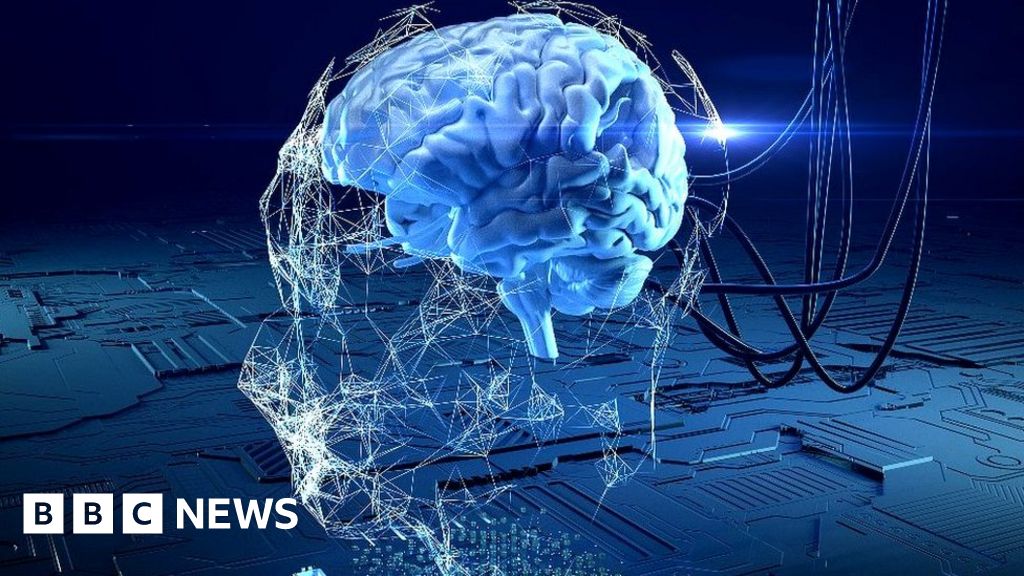Brain Back-up Firm Nectome Loses Link To MIT

 Image copyright
Getty Images
Image copyright
Getty Images
A company attempting to map people's brains so their memories can be stored in computers has lost its link to one of the United States' top universities.
US start-up Nectome revealed its brain back-up plan last month, warning at the time that the process involved would be "100% fatal".
A number of neuroscientists subsequently poured scorn on the plan.
The Massachusetts Institute of Technology (MIT) has now announced that it is severing ties with the project.
One of the university's professors had previously benefitted from a federal grant given to Nectome and was attempting to combine its work with his own research into mouse brains.
"Neuroscience has not sufficiently advanced to the point where we know whether any brain preservation method is powerful enough to preserve all the different kinds of biomolecules related to memory and the mind," said the MIT in a blog explaining its decision.
Nectome has responded saying: "We appreciate the help MIT has given us, understand their choice, and wish them the best."
The university's in-house publication MIT Technology Review had been first to draw attention to Nectome's plans and the educational establishment's own involvement.
It has since reported that the collaboration had attracted "sharp criticism" from experts in the field, who feared it lent credibility to an effort that was doomed to fail.
"Fundamentally, the company is based on a proposition that is just false," said Sten Linnarsson of the Karolinska Institute in Sweden.
"[And there's a risk] some people actually kill themselves to donate their brains."
Nectome had previously said that it believed it would one day be possible to survey connectome - the neural connections within the brain - to such a detailed degree that it would be able to reconstruct a person's memories.
In order to achieve this, the brain must be preserved at point of death - a process called vitrifixation.
MIT Technology Review had reported that the firm was soon hoping to test its theories on the head of someone planning a doctor-assisted suicide.
However, Nectome has acknowledged that its work is at a relatively early stage.
"We believe that clinical human brain preservation has immense potential to benefit humanity, but only if it is developed in the light, with input from medical and neuroscience experts," it said in a statement posted to its website.
"We believe that rushing to apply vitrifixation today would be extremely irresponsible and hurt eventual adoption of a validated protocol."
Despite the sceptics, Nectome has won a $960,000 (£687,000) grant from the US National Institute of Mental Health.
It is also backed by Y Combinator, a high-profile Silicon Valley-based funder that previously invested in Dropbox, Airbnb and Reddit among others.
From Chip War To Cloud War: The Next Frontier In Global Tech Competition
The global chip war, characterized by intense competition among nations and corporations for supremacy in semiconductor ... Read more
The High Stakes Of Tech Regulation: Security Risks And Market Dynamics
The influence of tech giants in the global economy continues to grow, raising crucial questions about how to balance sec... Read more
The Tyranny Of Instagram Interiors: Why It's Time To Break Free From Algorithm-Driven Aesthetics
Instagram has become a dominant force in shaping interior design trends, offering a seemingly endless stream of inspirat... Read more
The Data Crunch In AI: Strategies For Sustainability
Exploring solutions to the imminent exhaustion of internet data for AI training.As the artificial intelligence (AI) indu... Read more
Google Abandons Four-Year Effort To Remove Cookies From Chrome Browser
After four years of dedicated effort, Google has decided to abandon its plan to remove third-party cookies from its Chro... Read more
LinkedIn Embraces AI And Gamification To Drive User Engagement And Revenue
In an effort to tackle slowing revenue growth and enhance user engagement, LinkedIn is turning to artificial intelligenc... Read more

